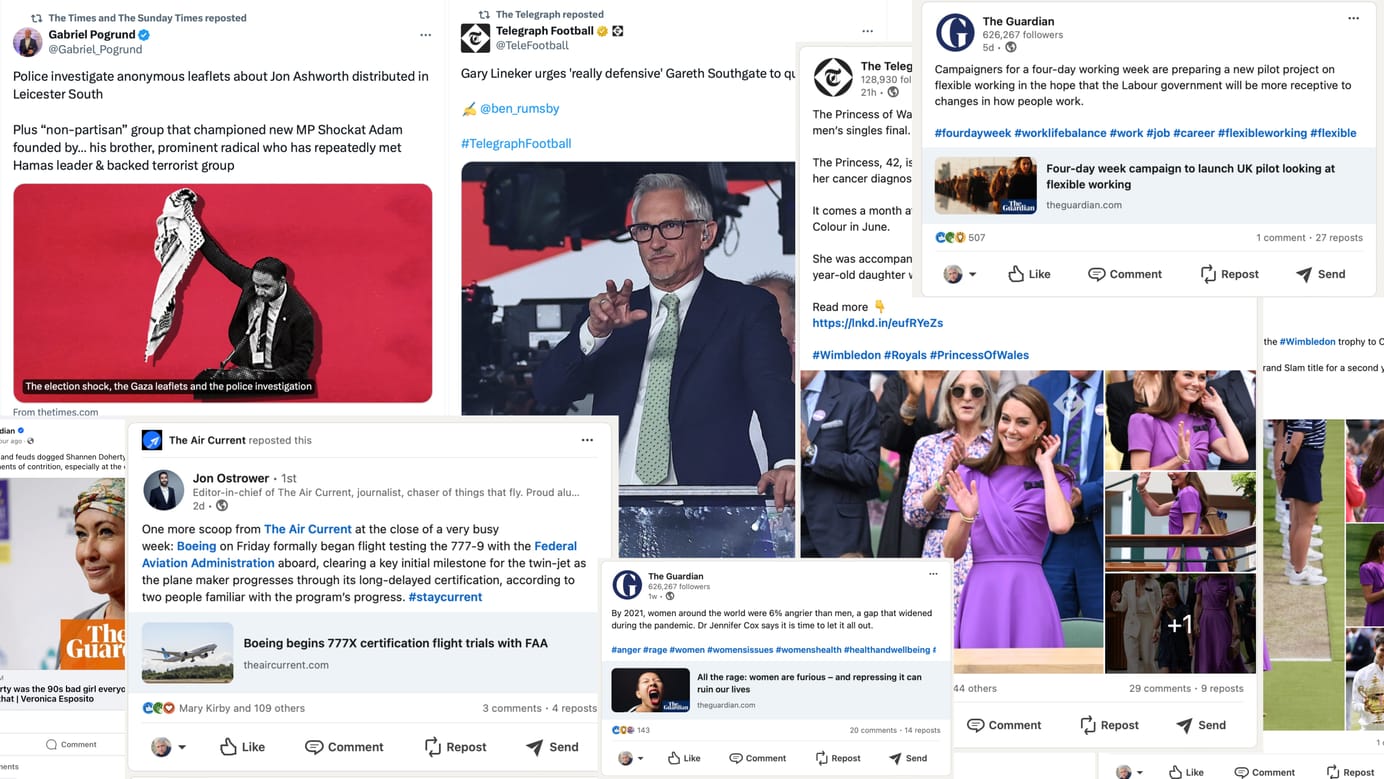Facebook: Opportunity or Threat for Publishers?
[](http://commons.wikipedia.org/wiki/Image:Facebook.svg)Image via [Wikipedia](http://commons.wikipedia.org/wiki/Image:Facebook.svg)
I have spent a lot of time thinking about [Facebook](http://facebook.com "Facebook") in recent weeks. The [announcements at f8 ](http://blog.facebook.com/blog.php?post=383515372130)were, I think, significant in how the social network is starting to overlay its social graph over other people’s content – or, without the webby jargon, about how your web reading experience can become a social activity through your Facebook account. And I’m think about how that might affect our business.
Some context: three years ago, I tended to describe Facebook as “training wheels social media”, with people who got enthusiastic tending to move on to other things fairly swiftly. Things have changed since then. Facebook has developed rapidly, and for many people it effectively *is* social media. If they have no strong impulse towards creation, be it photos, art, video or text, then it’s the perfect place: an easy way to share what they do creates, and exchange messages, with their social circle at a central point. The arrival of the News Feed, which is deeply bloggy in form (items of content with comments below, reverse chronological order) has solved the “what do I do on Facebook?” problem in one fell swoop, and pushed it towards mainstream acceptance.
The ability to take this network of people, overlay it over your content, and allow them to share it with their friends through Facebook has obvious attractions to publishers. Social sharing is, as Shane Richmond wrote recently, [the most important behavioural shift of the 21st century](http://blogs.telegraph.co.uk/technology/shanerichmond/100005077/social-sharing-is-the-most-important-behavioural-shift-of-the-21st-century/). People market your content for you, and then share information about themselves through that process? Intriguing.That has all sorts of implications for both content and commercial personalisation.
There is, however, a nasty wee fly wriggling in the Facebook ointment, and that’s privacy. As Alan Patrick posted earlier, [there’s money out there](http://broadstuff.com/archives/2199-The-Beginning-of-the-End-of-Facebook.html), and people to take it, for a new social network that respects privacy as Facebook, well, doesn’t. The early adopters of the web are deeply unhappy with [Facebook’s shifting approach to privacy](http://mattmckeon.com/facebook-privacy/), and many of them are [deleting their Facebook accounts](http://www.readwriteweb.com/archives/more_web_industry_leaders_quit_facebook_call_for_o.php). Is this something that will stay within the tech bubble, or is it the beginning of the end for Facebook as Alan predicts? Facebook is, I suspect, gambling on the trade-off; it expects that most people will think that the better personalised experience they get is worth the transfer of data. But is that a good assumption?
I’ve been experimenting with these new tools a little. You can now Like every post on *OM&HB* with the little button below. My [Typepad](http://www.typepad.com/ "TypePad") blogs have Like buttons for the whole blog ([an example](http://adam.tinworth.org/)). And I’m seeing use of them. It’s less than I’m seeing around, say [Twitter](http://twitter.com "Twitter") and [Tweetmeme](http://www.tweetmeme.com "TweetMeme"), but it’s there and growing.
With my corporate hat on, that leaves me weighing corporate imperative against the political issues around Facebook. Given that the general public are far more accepting of Facebook than the web elite, can any publisher that aspires to mainstream success afford to ignore the new Facebook?
**Update**: Facebook is being [put to the question on privacy](http://blogs.journalism.co.uk/editors/2010/05/12/facebook-and-google-to-be-quizzed-on-whether-the-internet-is-safe-for-free-speech/) issues tonight
**Update 2**: [Facebook is doing very well in display advertising](http://professional.wsj.com/article/SB10001424052748704250104575238661210740510.html?mod=wsj_share_twitter). That’s one for the “threat” column.
[![Reblog this post [with Zemanta]](https://i2.wp.com/www.onemanandhisblog.com/content/images/2010/05/reblog_c4.png?w=960)](http://reblog.zemanta.com/zemified/f41f04fe-f5e0-492b-ae1c-c3fda08941f2/ "Reblog this post [with Zemanta]")
Sign up for e-mail updates
Join the newsletter to receive the latest posts in your inbox.










